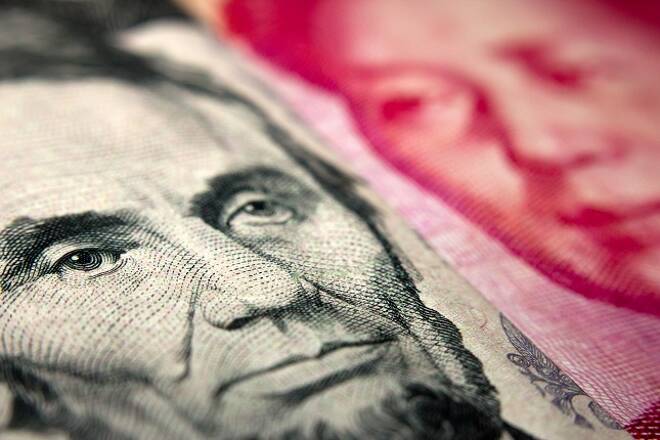Advertisement
Advertisement
The US Has All the Tools to Win a Trade War
By:
While the markets have been in steep decline, responding to the steel and aluminium trade tariffs and the $60bn of tariffs introduced on goods from China, there should have been no real surprise to the move, with President Trump having been clear from the get-go of his election campaign that trade imbalances needed to be addressed in the interest of the American people. Can the US prevail a trade war with China and other trading partners?
Advocates of Trump and the current administration will be cheering the president on, but whether the U.S President will find his supporters by his side in the months ahead remains to be seen. Trump’s does have a point, however, it’s a risky path.
There are multiple implications to using the threat of a trade war to expedite the rebalancing of trade terms with America’s key trading partners and when considering the fact that the trade terms have evolved over many decades, ripping off the band-aid that has, not only provided support to the U.S economy, but also the global economy, is not going to come without pain.
U.S consumers and manufacturers are at greatest risk.
A sudden increase in the cost of imported goods from China, would likely to lead to a material pullback in domestic consumption. U.S manufactured goods are just unable to compete and to be frank, even with tariffs, goods from China may ultimately be the preferred option. A material pullback in domestic consumption, something that the U.S economy relies heavily upon, is certainly to the detriment of the economy and the voter.
On the flip side, China is a key market for many U.S multinationals, including the likes of Apple, Microsoft, Boeing, IBM and General Motors, to name but a few. China is more than capable of hitting U.S manufacturers where it hurts, ultimately slamming the U.S economy and the U.S Dollar.
However, the US, still, has more tools to win a trade war with China. Donald Trump plays chess with the Chinese. The US is the number-one consumer in the world and China would not be pleased to lose its biggest client.
China’s reserved response last week was likely to be in the hope of a resolution to trade indifferences that has led to the U.S President delivering on a campaign promise. The lack of a more aggressive response certainly suggests that China is looking to avoid a trade war, while demonstrating an unwillingness to sit by and be bullied by the U.S.
There are ultimately many ways that China can hurt Trump and the Republicans. A cut back on soybean and other agricultural imports would see Trump’s support lifeline from the mid-West be crippled, a move that would undoubtedly hit the President’s ratings and prospects for a 2nd term.
Another retaliatory approach could be through a sell-down of its current Treasury holdings and reduced participation in auctions, a move that comes at a time when the U.S is in serious need of foreign investment, protectionism in place or not. Domestic appetite for U.S Treasuries alone would just not cover it. China’s holdings of U.S debt surged by a reported $126.5bn last year, the largest increase in 7-years.
The downside to such a move would be a material decline in the value of China’s foreign reserves, though the Chinese government is more than capable of devaluing the Yuan, a move that would certainly rile the U.S President even further. Once again, China will be on the defensive side.
Granted that the U.S may be able to win the current battle, but winning the war will be an altogether different proposition, with a full-blown trade war likely to only see losers, with no winners.
Can Trump’s move really make an impact on the current U.S trade deficit?
Well, only if trading partners sit back, accept the tariffs without retaliation. As the markets saw last week, no major global economy is going to sit back, particularly China. The only question that remains, is whether Trump will really push through on a trade war and how aggressively China and the rest respond.
Recessions and a Global Depression have resulted from previous trade wars. While Trump spent much of the early part of the year boasting about the record highs in the Dow, the S&P500, and the NASDAQ, the bragging has stopped and it could soon be the U.S economy and the global economy begin to pay the price…
About the Author
Bob Masonauthor
With over 28 years of experience in the financial industry, Bob has worked with various global rating agencies and multinational banks. Currently he is covering currencies, commodities, alternative asset classes and global equities, focusing mostly on European and Asian markets.
Advertisement
